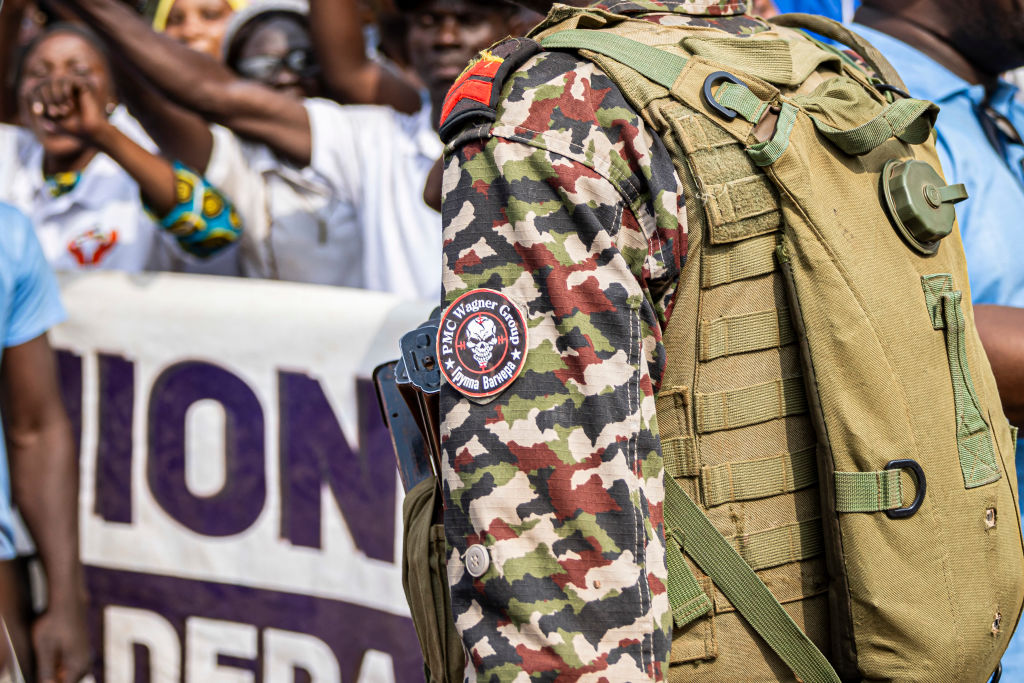When Russian Wagner Group mercenaries arrived in Mali in 2021 at the invitation of the ruling junta, the private military contractors were traveling light.
Wagner’s purported mission was to train the Malian Army (FAMa) to fight al-Qaida-backed terrorists with Jama’at Nusrat al-Islam wal-Muslimin (JNIM) and Tuareg separatists now operating under the banner of the Azawad Liberation Front (FLA). However, mercenaries quickly joined the fighting, despite having arrived lightly armed.
The solution, according to a recent report by the Global Initiative Against Transnational Organized Crime (GI-TOC), was to loot weapons from the battlefield or acquire them from FAMa itself in violation of the international Arms Trade Treaty (ATT). The treaty is designed to keep state-owned armaments from falling into the hands of terrorists and other nonstate actors such private military companies (PMCs).
Under the ATT, end-user certificates from the weapons supplier document the party — typically a national government — that is the sole intended recipient of the arms. A 2024 United Nations report found that countries sometimes violate those end-user agreements by providing their weapons to PMCs and mercenaries working alongside the national military.
GI-TOC’s analysis shows that weapons weren’t the only thing Wagner received from FAMa. Armored vehicles, machine gun-mounted vehicles known as technicals and possibly attack drones also were supplied to Wagner from Army stocks.
As Wagner repeatedly struck out on its own after 2023, it did so using FAMa materiel, the study found. Working with arms experts and FAMa members, GI-TOC researchers viewed 150 still images and videos taken between January 2022 and June 2025 to document Wagner fighters using FAMa weapons.
“It does seem to be FAMa policy to share this equipment freely with Wagner,” GI-TOC senior analyst Julia Stanyard said during a recent webinar discussing the report.
“When they arrive, they’re often poorly equipped and need to make use of what they can find,” Stanyard added. “So, it seems to be Wagner policy that this is not limited to Mali.”
Wagner has followed a similar pattern across Burkina Faso, Central African Republic, Libya and Niger.
In Mali, Wagner fighters made seizing weapons from JNIM and FLA fighters a centerpiece of their operations and frequently boasted about their finds on their social media channels. As a result, Wagner fighters and FAMa soldiers frequently found themselves competing to capture terrorists’ weapons.
“In multiple cases, Wagner troops raced FAMa units to claim captured material,” GI-TOC researchers wrote. “By the time official tallies took place, weapons listed as seized in field reports had often disappeared, with Wagner believed to be responsible for stealing the official stock.”
In one case in Ansongo in January, a Wagner fighter killed a FAMa soldier in an argument over a motorcycle seized from extremists.
Wagner also launched its own operations against high-value targets outside the FAMa mandate, possibly to seize valuable weapons or other items, GI-TOC reported.
Wagner’s actions in Mali highlight the need for global arms control strategies that address the trend of PMCs embedding themselves with national militaries, GI-TOC researchers wrote.
“Arms-exporting countries should undertake additional due diligence when considering an export to any country that has engaged with, hired or collaborated with a PMC,” GI-TOC researchers wrote. “Arms manufacturers should also undertake additional due diligence when looking to supply countries that have engaged with PMCs.”
The transition from Wagner Group to Africa Corps in June reduced the amount of ground attacks Russian forces have taken part in. However, looting of weapons and other materiel continues, as does the use of FAMa armaments.
Africa Corps forces are more likely to stay out of direct battles, offering air support in the form of drones, Heni Nsaibia with the Armed Conflict Locator and Event Data project said during a recent webinar.
“There are accumulating accounts that say that these drones are co-operated by Russian mercenaries and Malian forces,” Nsaibia said.

